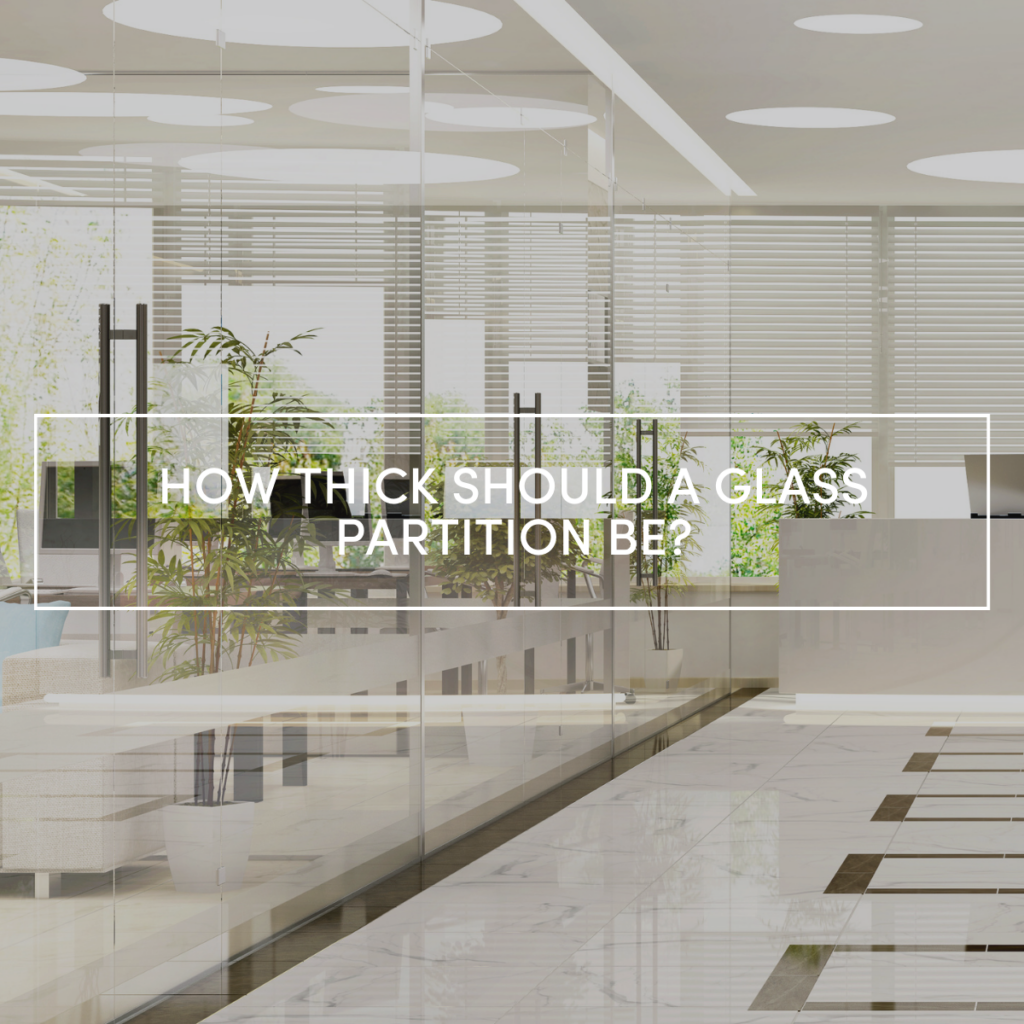How thick should a glass partition be?

The design and functionality of office spaces have seen a significant shift in recent times. Gone are the days of dull, rigid, fixed spaces, in favour of more open and collaborative spaces. As a results, glass partitions have become increasingly more popular due to their aesthetic appeal and space-enhancing properties. With this, a frequent question arises: How thick should a glass partition be?
In this article we take an in-depth look at glass partitions and answer this important question.
Determining the Optimal Thickness
Several factors influence the choice of thickness:
Partition Size
Larger partitions, spanning the full length or width of an office for example, generally necessitate thicker glass for added stability and safety, compared to a glass partition used to segment a smaller area for an office or breakout area.
Material Choice
Glass partitions can be made from various materials, with toughened and laminated glass being two primary choice
Toughened Glass
Recognised for its strength and safety, toughened glass typically ranges from 10mm to 12mm for office partitions. This glass is thermally treated to be tougher and more resistant to breakage.
Laminated Glass
Comprising multiple layers with an inter-layer sandwiched between the glass panels, laminated glass is chosen for its safety attributes. When broken, the laminate holds the glass pieces, preventing them from scattering. For partitions, 8mm to 10mm thick laminated glass is often ideal.
Safety Protocols
Adhering to safety guidelines and standards can sometimes dictate the minimum required thickness, especially in areas prone to earthquakes or high winds.
Budget Constraints
While thicker glass offers numerous benefits, it can also come with a steeper price tag. Balance your budget with your requirements to find the best fit.
The importance of glass partition thickness
The thickness of a glass partition can significantly affect its stability, safety, and acoustic properties. Let’s look at some of the compelling reasons for considering glass thickness:
Safety
A thicker glass partition is less susceptible to shattering or breaking when subjected to impact, ensuring safety in high-traffic areas.
Acoustic Insulation
Thicker glass generally offers superior sound insulation, an essential feature in office environments to ensure privacy and reduce noise distractions.
Thermal Efficiency
Thicker partitions provide better insulation, maintaining internal temperatures and potentially reducing energy costs.
Aesthetic Variance
While thicker glass can have slightly reduced transparency due to iron content it can sometimes contribute to the design, adding a feeling of robustness and privacy to certain spaces.
So, how thick should a glass partition be?
The thickness of a glass partition is a decision influenced by safety, functionality, and design considerations. Consulting with an architect or interior design specialist can provide insights tailored to your specific needs, ensuring your chosen glass partition aligns perfectly with your objectives and workspace requirements.
Know the specs you need? Build your glass partitions online today.




